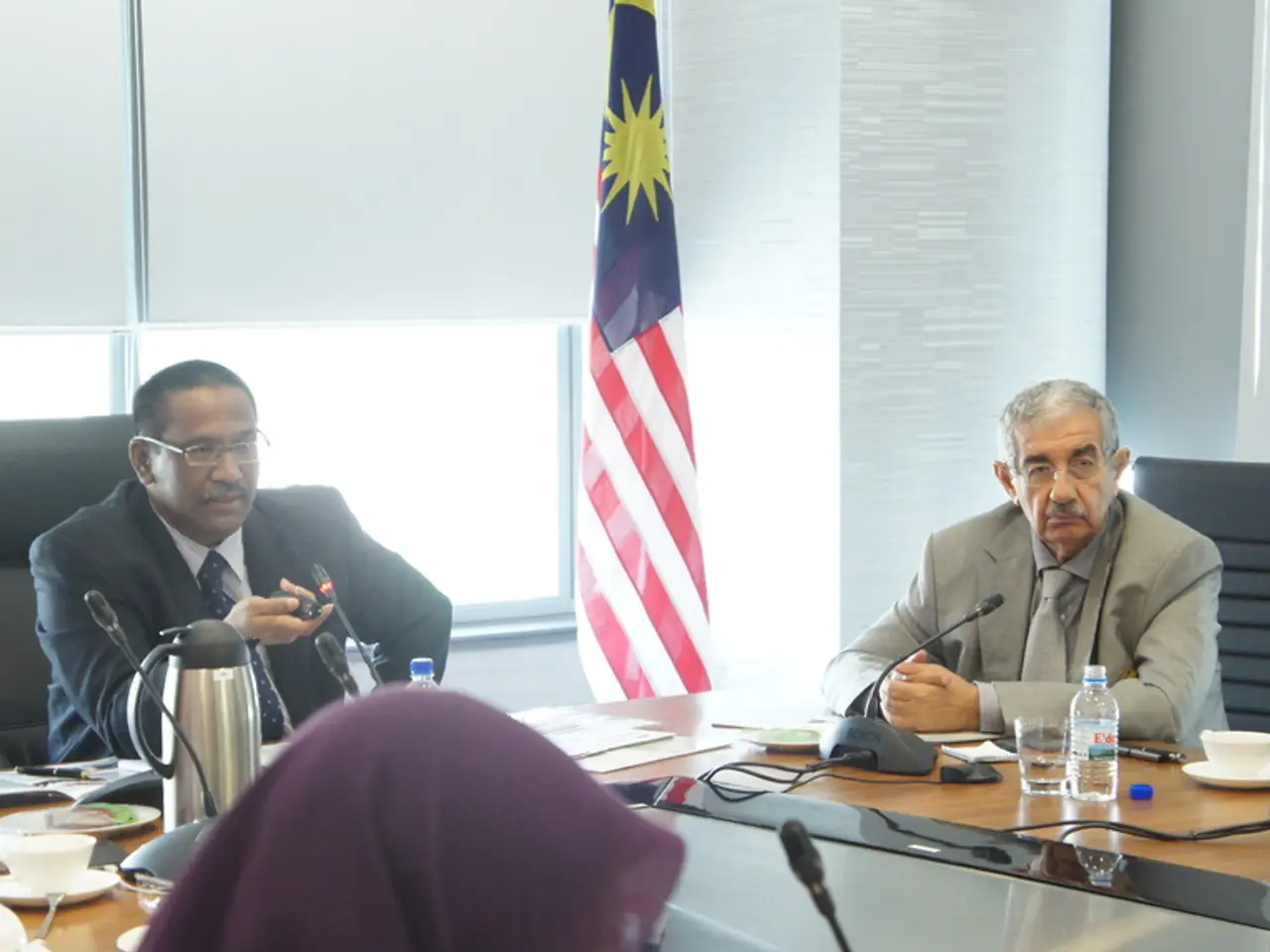Approximately 280 Afghan individuals are held by Pakistani authorities, stemming from their admission programs.
In the heart of Europe, the Federal Admission Program for Afghans, particularly those currently residing in Pakistan, has been effectively suspended since early 2025. This decision, made by the new center-right coalition government, has left about 2,400 Afghans who had been approved and were ready to travel with visas in limbo, stranded without visas or flights [3][1][5]. An additional 17,000 others in earlier processing stages face uncertainty due to the program’s "dormant" status.
The suspension comes amidst increasing deportations of Afghans in the region, with Pakistan being a significant contributor. Since the end of 2023, Pakistan has been massively deporting registered individuals, including those under the German admission program [2]. However, recent legal and administrative developments aim to ensure the safety and release of detained Afghans in Pakistan.
A Berlin Administrative Court ruling in July 2025 ordered Germany to honor all commitments to issue visas to Afghans promised admission, leading to the government withdrawing its appeal and agreeing to issue visas to pending cases like an Afghan lawyer and her family [2]. Germany has also been in close contact with Pakistani authorities, actively using emergency diplomatic mechanisms to prevent deportations of Afghan refugees from Pakistan [1].
Despite these efforts, no precise timeline for resuming the admission program or issuing visas beyond court-mandated cases has been provided, and decisions are still pending within the government [1]. The German Government, however, continues to provide more than 20 million euros in humanitarian aid targeting vulnerable Afghans, especially women and children, through UN and non-governmental organizations [4].
The suspension of the admission program has raised concerns about the safety and security of particularly at-risk individuals, with reports of violence and family separations by Pakistani security forces [6]. The organization calls for the immediate issuance of visas for the affected individuals. It is worth noting that a security check is carried out for each individual, and approximately 350 former local forces of German institutions with their families are part of the intake programs [7].
Observers believe that Pakistan is increasing pressure on the Islamic Taliban in Afghanistan through these mass deportations [8]. The coalition government of Union and SPD stopped intake programs for Afghans in Germany in early May [9]. The German Society for International Cooperation (GIZ) is in contact with these individuals and provides support [10].
The Kabul Air Bridge organization continues to receive new appeals for help from Afghans in Pakistan. The screening process for these Afghans in Pakistan has been ongoing due to the closure of the German Embassy in Kabul since August 2021 [11]. Reporters Without Borders have reported that a journalist with an admission offer and his family members have been taken to a detention camp [12]. About 35 of these Afghans have already been deported to Afghanistan [13].
As the situation remains uncertain, the Federal Government is in contact with the Pakistani government to clarify the situation as soon as possible [1]. Islamabad plans to expel a total of three million Afghan women and men in the long term [14]. Raids against Afghans have been reported in several accommodations in Islamabad, with families being arrested [6].
In conclusion, the suspension of the Federal Admission Program for Afghans has left thousands stranded in Pakistan, with no clear timeline for resuming or replacing the program. The government's decisions regarding the future of these individuals are eagerly awaited.
Politics and general news have been focused on the suspension of the Federal Admission Program for Afghans, with the German government's delay leading to uncertainty for about 2,400 approved individuals and an additional 17,000 undergoing processing stages. This overshadows the crime and justice sector, as increased deportations of Afghans have caused concerns over safety and security, particularly for at-risk individuals, due to reported violence and family separations by Pakistani security forces.






